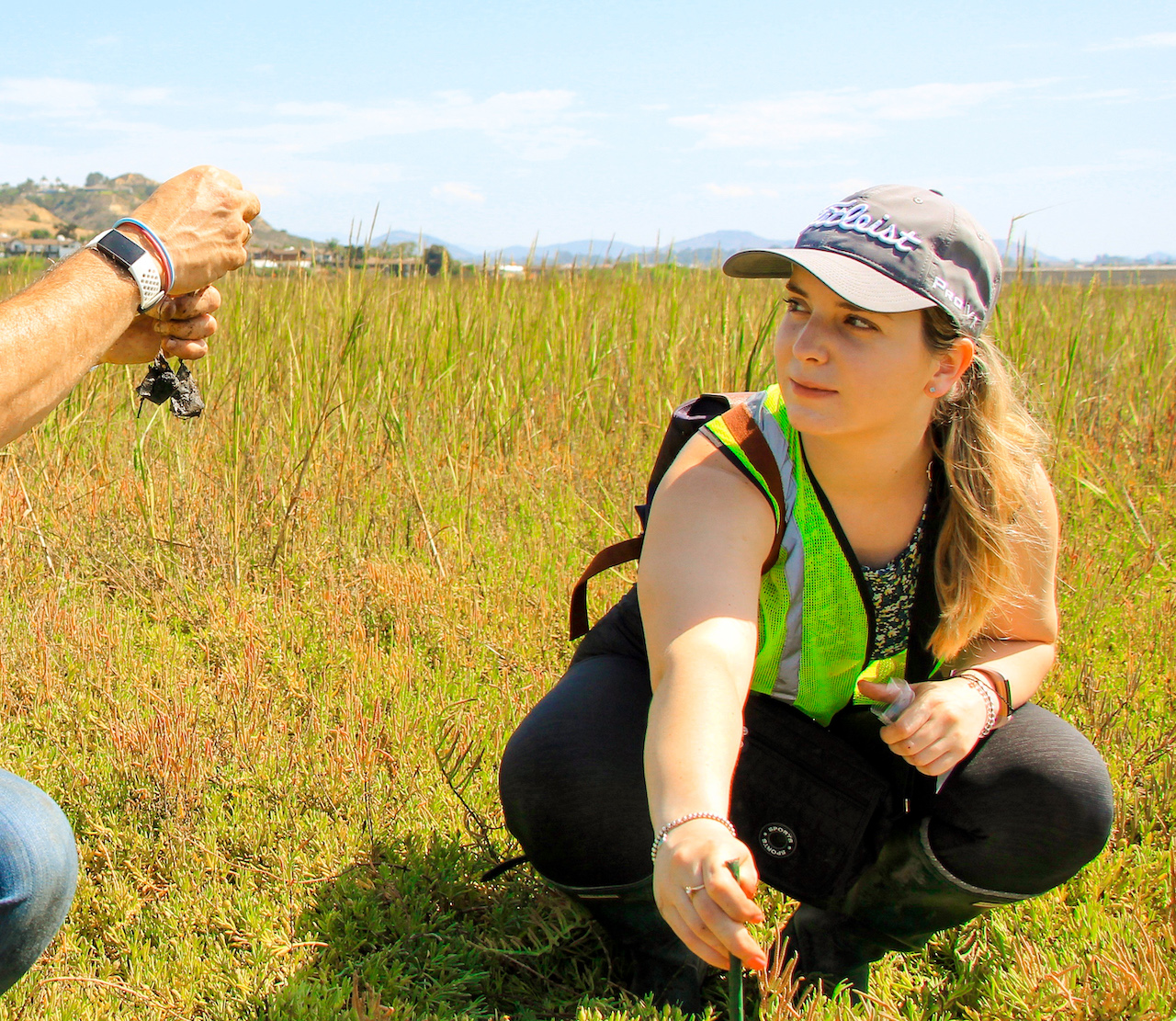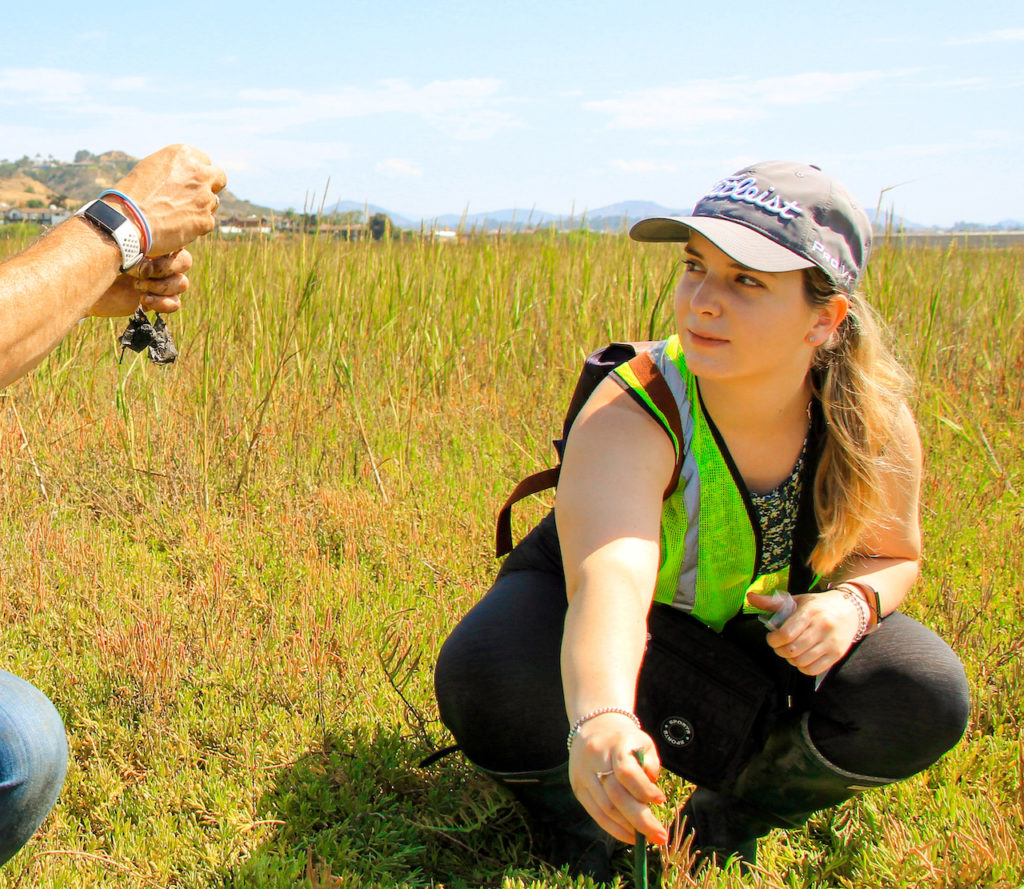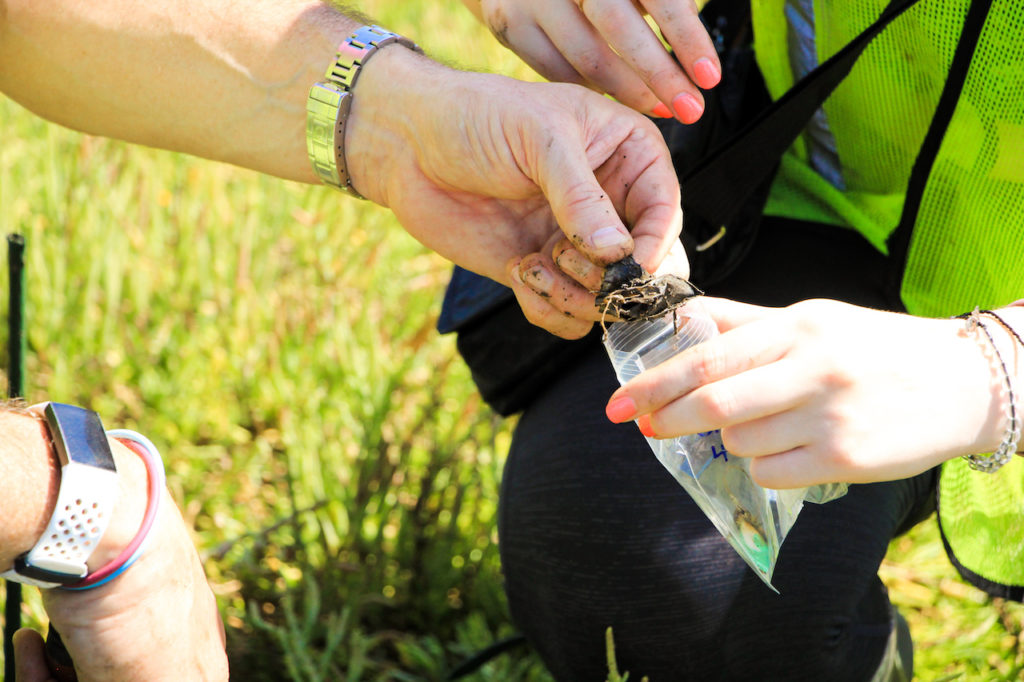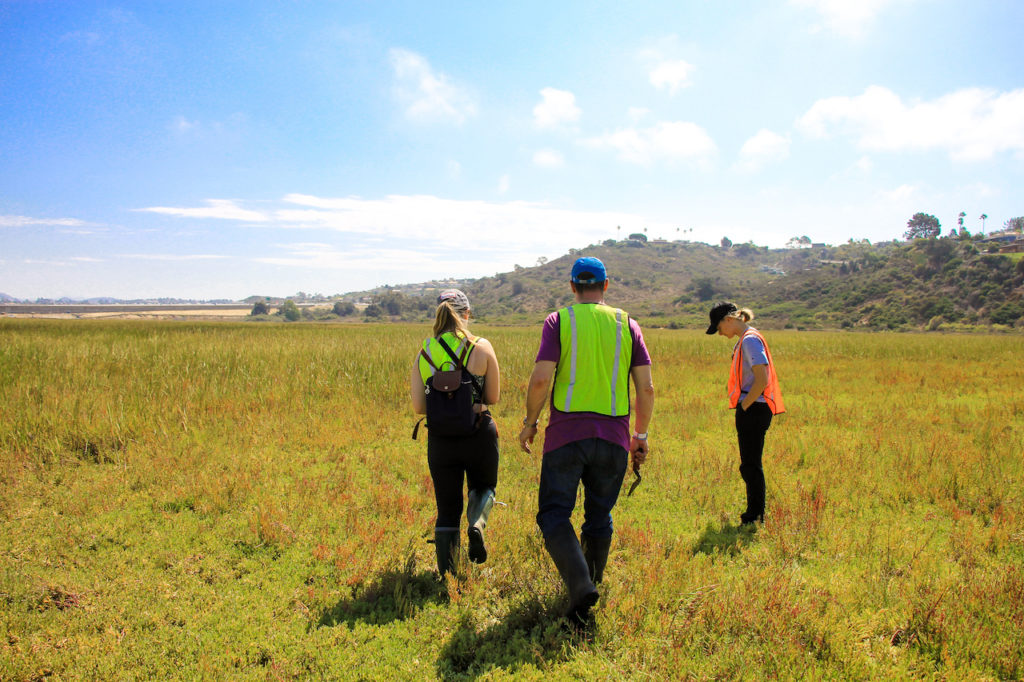Hero Spotlight, Kindra Hixon
Follow ( 0 Followers ) X Follow E-mail : * Follow Unfollow

Gabriella Gimson, a physical geography student at University of Saint Andrews (Scotland, UK), is analyzing unearthed tea bags at San Elijo Lagoon. For her senior thesis, Gabriella is focusing on carbon storage in the wetland soil of San Elijo Lagoon Ecological Reserve.
She partnered with our Science Research Director Tim Stillinger to access the lagoon for her testing. (Gabriella is one of the participating student researchers in our collegiate collective.)
She is using the Tea Bag Index—a method that measures the decomposition rates of Lipton tea bags buried in soil. This simple method enables standardized measurements in wetlands around the globe, at a scale not possible with more expensive or complicated monitoring methods.

Above: Gabriella Gimson observes Lipton tea bags unearthed from 8-centimeters deep within designated soil installation sites at San Elijo Lagoon.
Decomposition is a natural process that produces greenhouse carbon dioxide. Healthy coastal wetlands are viewed by the scientific community as carbon sinks, meaning they are reservoirs able to absorb the atmosphere’s carbon.
Wetland soil has a slower decomposition rate of plant material than dry upland and agricultural soils, meaning wetland soils can store carbon longer and more effectively.

Above: Gabriella collects tea bags from soil in the Central Basin of San Elijo Lagoon Ecological Reserve.
Three months ago, Gabriella buried her Lipton tea bags at various locations in San Elijo Lagoon. Now unearthed, she will dry and weigh each of them to determine how much of the tea bag’s contents have decomposed; this indicates how fast plant material decomposes in 90 days in San Elijo Lagoon.
Her results will contribute to the growing database of Tea Bag Index data that allow for the comparison of decomposition rates and carbon storage of soils belonging to ecosystems around the world.
San Elijo Lagoon is now part of a global study of wetland carbon sequestration with measurements at 350 wetlands in 35 countries around the globe.

Our Nature Collective team wears work vests off-trail in areas where scientific soil studies are conducted by Gabriella Gimson.
Discovering how effective wetlands are at storing carbon in soil is vital in preventing damage to these ecosystems, as it helps with understanding the immense value wetlands have in mitigating climate change.
Thank you for following our Nature Collective blog, as we keep you informed of behind-the-scenes cutting-edge science, nature connections, experiences + protection of our dynamic planet.